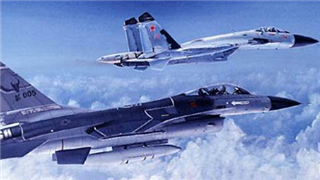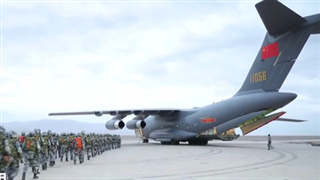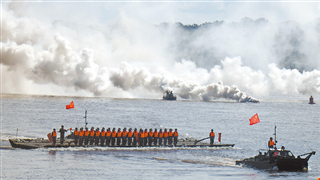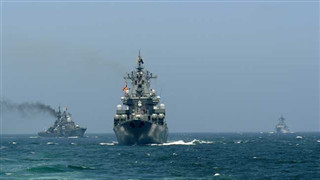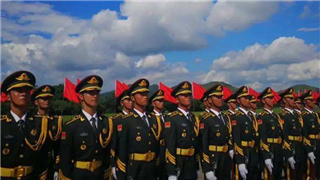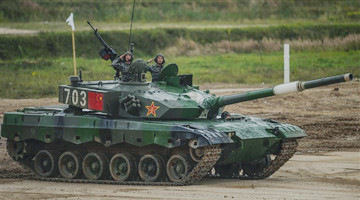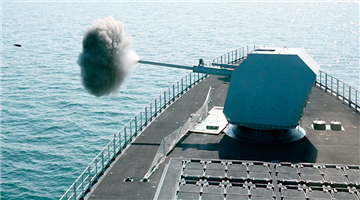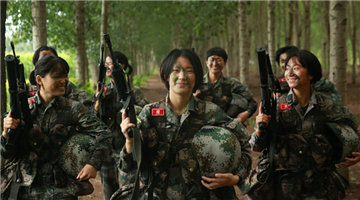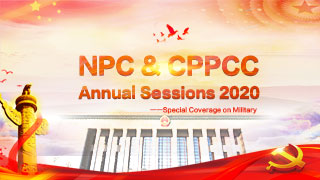
By Freddie Reidy
Editor's note: Freddie Reidy is a freelance writer based in London. He studied history and history of art at the University of Kent, Canterbury, specializing in Russian history and international politics. The article reflects the author's opinions, and not necessarily the views of CGTN.
This year marks the 75th anniversary of the end of the Anti-Fascist War. For 75 years nations have honored the dead, the wounded and those impacted well beyond 1945. With increasingly fewer veterans and people alive from that time, it is of greater importance than ever, that we remember their sacrifice and acknowledge the long-lasting consequences of total war.
The signing of the Japanese Instrument of Surrender in Tokyo Bay, aboard the USS Missouri marked not just the cessation of hostilities but the dawn of a new age. The preceding decades would bear witness to many ideological conflicts but also precipitated the end of colonial rule across the globe.
Nowhere was this truer than in Asia. China had overthrown Japanese aggression along with her neighbors in the Korean Peninsula and South East Asia. Over the subsequent decades, colonial rule from France, the Netherlands and United Kingdom would also come to an end, giving rise to newly independent nations.
The collective endeavor of allied forces in the Second World War also led to China's re-emergence on the world stage. The Cairo Conference of 1943 was a landmark occasion where Chinese representation at the highest level was made, marking a major step towards China regaining her sovereignty and having her global significance recognized.
Younger generations may ask what significance the war has on today's world, and the answers are myriad. While many ideological differences were put aside to defeat a fascist axis, the allied coalition showed the true potential of collective endeavor. A valuable lesson as the world confronts similarly unifying challenges: COVID-19, global recession, and climate change.
For generations living with the realities of war, homelessness, starvation, destruction of property and loss of liberty, the inner strength necessary to overcome such pain and go on to prosperity in the 1950s is a humbling feat.

There are also many prescient lessons from the causes of the Anti-fascist War. The ravages of the First World War had led to unrealistic punitive treaties, certain to bread decent and lead to conflict. There was a collective feeling, that the price of war was too high, and peace should be maintained by appeasement, containment, and sanctions. The world lacked an effective system of engagement and arbitration.
Today, in an age of international designment, principally led by the United States, there is a similar risk the avenues of cooperation and dispute resolution are being barricaded. Vital institutions, such as the United Nations, are being diminished by a lack of engagement.
"Megaphone diplomacy" and military agitation is not the language of international diplomacy and can have dire consequences as history teaches us.
After the collaboration of the Anti-Fascist War, political disengagement was rapid as old differences arouse. A Cold War between the West and Soviet Union developed. This tension came close to all out war in 1962, during the Cuban Missile Crisis. It was not provocative rhetoric or increased military pressure that prevented war though, but political engagement at the UN. The UN, set up in the wake of the Second World War to prevent such crises arising.
If nothing else, the 75th anniversary should be used as a remembrance of the past and a renewed commitment to prevent a repetition of such suffering.
The subsequent decades after the war also demonstrates that our enemies of the past do not need to be our enemies of the present or future. In Europe today, Germany is at the heart of the European Union and Japan is one of the United States' leading trade partners and political allies. Overcoming the oppression of fascist dictate meant that nations had the ability to forge their own paths and not be shackled or beholden to the ways of the past.
It is estimated that 70-85 million people died during the Anti-Fascist War. For those that lived, who remembers watching Imperial Japanese, German or Italian forces lay waste to their homes, families, and way of life, there was a residual hope that things would one day, return to normal. Seventy-five years ago marked the point where that long road back began. That glimmer of hope for a better future is now the responsibility of society today.
